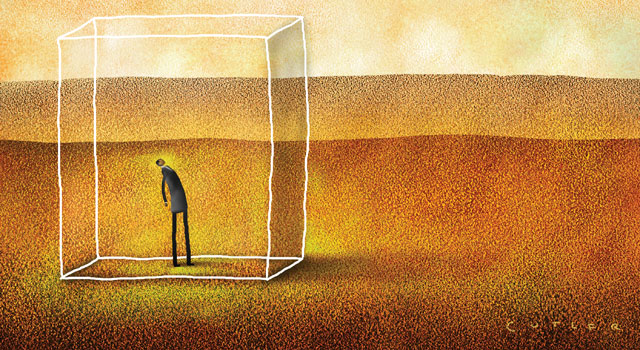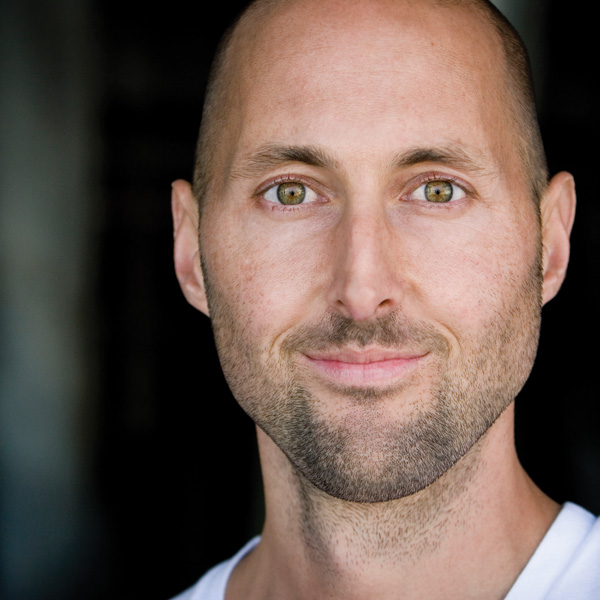Pema Chödrön is an American Buddhist nun whose simple, powerful book, The Places That Scare You, offers a “guide to fearlessness in difficult times” — the kind that all of us must confront at intervals throughout our lives. Here’s just a little of her essential wisdom.
Compassionately Interrupt Habits
“The fear habit, the anger habit, the self-pity habit — all are strengthened and empowered when we continue to buy into them. The most compassionate thing we can do is to interrupt these habits.”
Amen.
Chödrön also says: “Ordinarily we are swept away by habitual momentum and don’t interrupt our patterns even slightly. When we feel betrayed or disappointed, does it occur to us to practice [conscious choices and awareness]? Usually not.” But it’s in the midst of that confusion, she says, where we can gain the most from our practice.
Chödrön continues: “Acknowledging that we are all churned up is the first and most difficult step in any practice. Without compassionate recognition that we’re stuck, it’s impossible to liberate ourselves from confusion. [The second step,] ‘doing something different,’ is anything that interrupts our ancient habit of tenaciously indulging in our emotions.” She points out that “anything that’s non-habitual will do — even sing and dance or run around the block. We can do anything that doesn’t reinforce our crippling habits. The third difficult practice is to then remember that this is not something we do just once or twice. Interrupting our destructive habits and awakening our heart is the work of a lifetime.”
Here’s to doing the work!
Grudges and Rat Poisoning
“We’d be wise to question why we hold a grudge as if it were going to make us happy and ease our pain,” says Chödrön. “It’s rather like eating rat poison and thinking the rat will die. Our desire for relief and the methods we use to achieve it are definitely not in sync.”
A much better solution, she points out, would be to cultivate compassion for the other individual, and to recall that we’re all just pilgrims on the quest to discover our highest selves — even if we don’t always live up to the standards we aspire to.
Rejoice in Our Good Fortune
Chödrön reminds us that even in difficult times, our life is still full of blessings. It’s helpful to develop the practice of seeing this beauty. As we do this, we literally train our subconscious minds to perceive and appreciate more amazing bounty on a daily basis.
Although this may not come naturally to us at first, she notes, we can practice noticing and appreciating our own good fortune: “We can train in rejoicing in even the smallest blessings our life holds. It is easy to miss our own good fortune; often happiness comes in ways we don’t even notice. It’s like a cartoon I saw of an astonished-looking man saying, ‘What was that?’ The caption below read, ‘Bob experiences a moment of well-being.’ The ordinariness of our good fortune can make it hard to catch.”
It reminds me of a section in Marci Shimoff’s great book, Happy for No Reason, where she provides us with an inspiring look at some of the recent and powerful findings in positive psychology.
She talks about the fact that we all have what psychologists call a “happiness set-point” that’s about 50 percent genetic, 10 percent circumstantial (like our wealth and marital status) and 40 percent within our control. Researchers have discovered that even if someone experiences great gains or losses, he or she tends to wind up at the same happiness set-point.
For example, after about a year, a lottery winner will lose her buzz and go back to the same level of happiness, and, after the same period, a person who loses his legs will return to the same basic level of happiness.
Remarkable.
The cool thing is we can raise our happiness set-point (and our resiliency) through practices, like those Chödrön recommends, that “incline our minds to joy.” At the most basic level, this means finding and noticing things to celebrate. The warm water in our shower, the smooth ride on a freeway, the abundant food in a grocery store or at a farmers’ market.
So, what can you celebrate today?!
Cement on the Garden
“Rather than appreciate where we are, we continually struggle to nurture our dissatisfaction,” says Chödrön. “It’s like trying to get flowers to grow by pouring cement on the garden.”
Are you always thinking about the things that don’t go the way you want? (Hint: If you make a habit of blaming, criticizing and complaining, you probably are.)
In The Diamond Cutter, cowritten with Lama Christie McNally, Geshe Michael Roache talks about the importance of getting rid of what he calls “useless talk.” Specifically, blaming, criticizing, complaining and gossip.
To start cleaning that stuff out of our minds is an incredibly powerful practice — one that simultaneously inclines our minds to joy and improves the way we handle times that aren’t so joyful — the difficult times that Chödrön’s book is all about.
All is Fleeting
“That nothing is static or fixed, that all is fleeting and impermanent, is the first mark of existence,” Chödrön reminds us. “It is the ordinary state of affairs. Everything is in process. Everything — every tree, every blade of grass, all the animals, insects, human beings, buildings, the animate and inanimate — is always changing, moment-to-moment. We don’t have to be mystics or physicists to know this. Yet at the level of personal experience, we resist this basic fact. It means that life isn’t always going to go our way. It means there’s loss as well as gain. And we don’t like that.”
Impermanence.
We talk about this theme a lot because it’s another one of those ideas all of our great teachers come back to again and again. I like Anthony de Mello’s lyrical words on the subject: “We cling to things in the past and cling to things in the present. . . . Do you want to enjoy a symphony? Don’t hold on to a few bars of the music. Don’t hold on to a couple of notes. Let them pass, let them flow. The whole enjoyment of a symphony lies in your readiness to allow the notes to pass. . . .”
Beautiful.
Let’s allow the notes to pass — even as we dare to look closely at the places that scare us.
Download a PDF summary of The Places That Scare You.
About Pema Chödrön
(Formerly known as Deirdre Blomfield-Brown) is an ordained Buddhist nun in the Tibetan Vajrayana tradition and a teacher in the lineage of Chögyam Trungpa. The goal of her work is to help people apply Buddhist teachings in everyday life. A prolific author, she has conducted workshops, seminars and meditation retreats in Europe, Australia and throughout North America. She is resident teacher of Gampo Abbey, a monastery in rural Cape Breton, Nova Scotia, Canada.





This Post Has 0 Comments